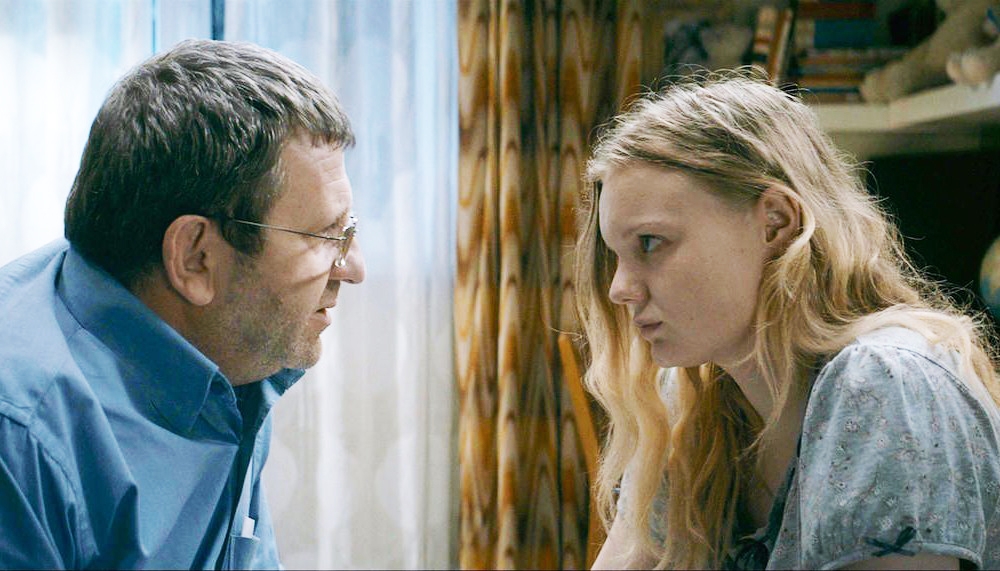
Set in a gloomy Transylvanian town, Cristian Mungiu’s latest Bacalaureat (Graduation) works on various levels. Following a familiar, universal arc, Mungiu introduces us to Dr. Romeo’s practical ambitions for his daughter being challenged by an unforeseen jolt. With no option than to compromise on the very ethics he taught his daughter, Dr. Romeo struggles for a moral identity. Also, impacted by depressing relationship trials, his purpose of living drowns in fear of a nearing defeat.
Mungiu’s protagonist is a man of great values. In stark contrast, he is also one with a plan. Ideally a doting father who is classic ‘white’ in his psyche, Dr. Romeo is a relatable figure. He is a hard-worker who regrets moving back to Romania in 1991. Brooding over the same, he aspires for a Cambridge scholarship for his bright daughter, which is one hurdle away – the Bacalaureat (or the graduating exams in school). When the confident Eliza suddenly falls victim of a sexual assault, her concerned father was left without a backup plan.
Writer Mungiu crafts Romeo as this rule book-ridden idealist whose ways aren’t easy to budge. Out of all scenes, the most notable is when he takes his mistress’s child to a park. Abruptly acquainted with corruption, politics and relative vices which otherwise wouldn’t have concerned him, our central character struggles to align these hard-coded ethics. It doesn’t help that he is surrounded by women of strength, opinions and choices.
The director in Mungiu succeeds in lending a finite temperament to the (I dare say, safe) dysfunctional family setting. A man who worries of his ambitions falling like nine pins is passive about his slowly disintegrating family. Thus, the main plot stems beautifully out of this moody backdrop. A lot of it is contributed by Tudor Vladimir Panduru’s sharp photography. His frames make way for a handful of outstanding metaphors. He also offers our characters breathing space while doing so. With several sub-plots to address and examine, Mungiu gives us time to internalize Romeo’s tribulations. Without a soundtrack to back the narrative, Bacalaureat’s length is, hence, a concern.
Performances are of high order. Adrian Titieni’s stylishly interprets Dr. Romeo without stooping to excess melodrama. Maria-Victoria Dragus as the headstrong Eliza is a revelation. She effortlessly steals the show as she assertively confronts her father on his illicit relationship. Lia Bugnar’s empathetic Magda is yet another winning character. Rares Andrici looks and plays his part with aplomb and so does Malina Manovici.
A reassuring picture of up-and-coming Romanian cinema, Bacalaureat (Graduation) is a moving battle of logical ambitions and sheer ethics. You wouldn’t know what is right but will greatly feel for every character Cristian Mungiu brings on screen. Now, that isn’t quite commonplace.
(The film was screened at 18th MAMI Mumbai Film Festival with Star held from 20-27 October 2016.)

